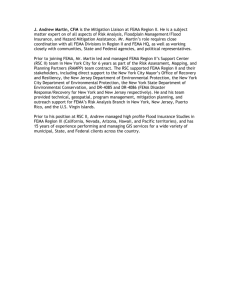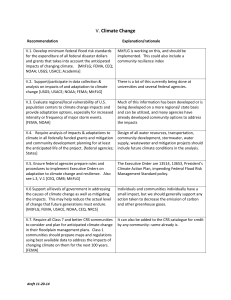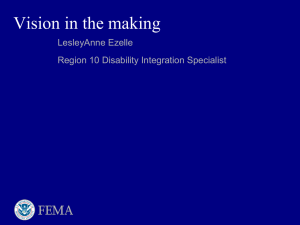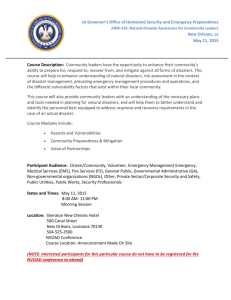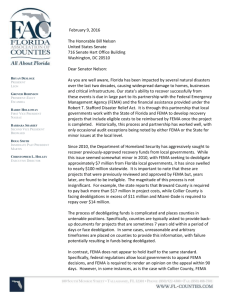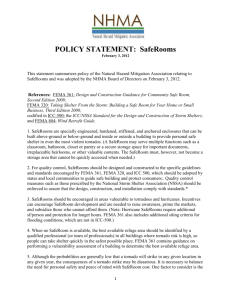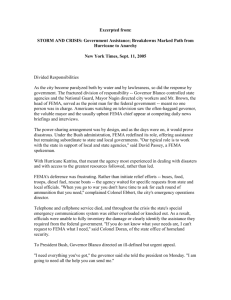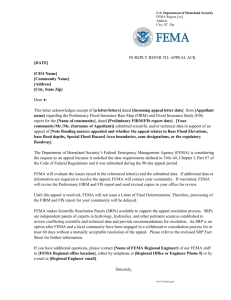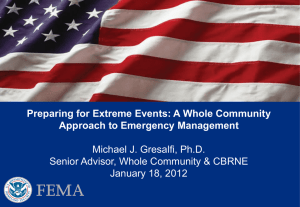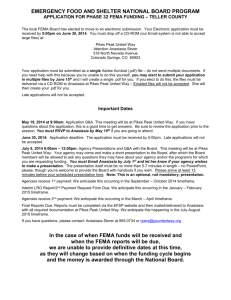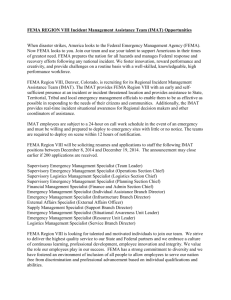FEMA Case Summaries - files.equaljusticeworks.org
advertisement
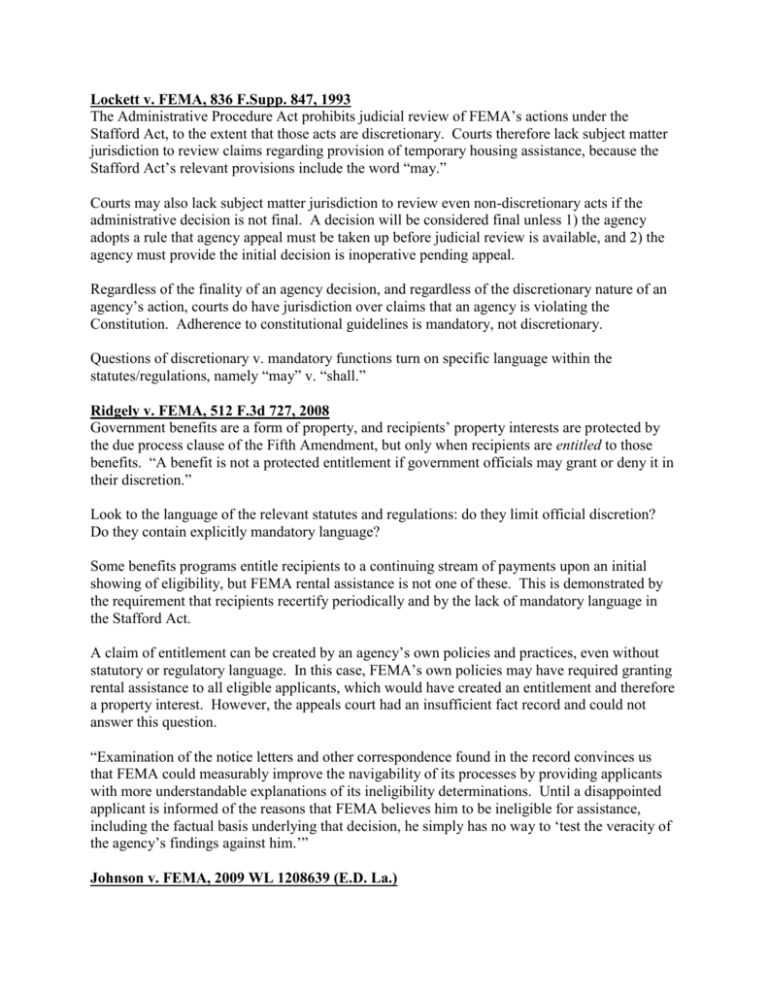
Lockett v. FEMA, 836 F.Supp. 847, 1993 The Administrative Procedure Act prohibits judicial review of FEMA’s actions under the Stafford Act, to the extent that those acts are discretionary. Courts therefore lack subject matter jurisdiction to review claims regarding provision of temporary housing assistance, because the Stafford Act’s relevant provisions include the word “may.” Courts may also lack subject matter jurisdiction to review even non-discretionary acts if the administrative decision is not final. A decision will be considered final unless 1) the agency adopts a rule that agency appeal must be taken up before judicial review is available, and 2) the agency must provide the initial decision is inoperative pending appeal. Regardless of the finality of an agency decision, and regardless of the discretionary nature of an agency’s action, courts do have jurisdiction over claims that an agency is violating the Constitution. Adherence to constitutional guidelines is mandatory, not discretionary. Questions of discretionary v. mandatory functions turn on specific language within the statutes/regulations, namely “may” v. “shall.” Ridgely v. FEMA, 512 F.3d 727, 2008 Government benefits are a form of property, and recipients’ property interests are protected by the due process clause of the Fifth Amendment, but only when recipients are entitled to those benefits. “A benefit is not a protected entitlement if government officials may grant or deny it in their discretion.” Look to the language of the relevant statutes and regulations: do they limit official discretion? Do they contain explicitly mandatory language? Some benefits programs entitle recipients to a continuing stream of payments upon an initial showing of eligibility, but FEMA rental assistance is not one of these. This is demonstrated by the requirement that recipients recertify periodically and by the lack of mandatory language in the Stafford Act. A claim of entitlement can be created by an agency’s own policies and practices, even without statutory or regulatory language. In this case, FEMA’s own policies may have required granting rental assistance to all eligible applicants, which would have created an entitlement and therefore a property interest. However, the appeals court had an insufficient fact record and could not answer this question. “Examination of the notice letters and other correspondence found in the record convinces us that FEMA could measurably improve the navigability of its processes by providing applicants with more understandable explanations of its ineligibility determinations. Until a disappointed applicant is informed of the reasons that FEMA believes him to be ineligible for assistance, including the factual basis underlying that decision, he simply has no way to ‘test the veracity of the agency’s findings against him.’” Johnson v. FEMA, 2009 WL 1208639 (E.D. La.) The Ridgely court’s finding that FEMA rental assistance does not amount to an entitlement with accompanying property interest is also applicable to FEMA temporary housing assistance. FEMA Trailer Formaldehyde Products Liability Litigation, 2010 WL 3168116 (E.D. La.) Plaintiffs brought suit against several respondents, including the government of the United States, because of formaldehyde vapors present in FEMA-supplied temporary housing units (emergency housing units, or EHUs, in this opinion). The government of the United States is normally immune to suit due to sovereign immunity, and cannot be sued unless it consents. However, the Federal Tort Claims Act (FTCA) contains a limited waiver of sovereign immunity. This limited waiver applies to circumstances where the US, if a private person, would be liable under that particular state’s laws. Here, the US points to a provision of the Alabama Emergency Management Act (AEMA) which prevents civil liability from attaching in the case of negligent death or injury when a person voluntarily and without compensation allows their premises to be used as a shelter in response to an emergency. The FTCA’s private person analogy dictates the US may only be liable to the extent a private person would be liable, but also allows the US to use any defense a private person could use. This includes the liability limitation of the AEMA. The Court found that: 1) FEMA owned or controlled real estate or other premises, 2) FEMA acted voluntarily and without compensation, 3) FEMA permitted the use of its premises, 4) for the purpose of sheltering persons during a disaster. In response to arguments regarding point two, the Court noted the Stafford Act contains permissive rather than mandatory language. The Court also noted that, while FEMA is funded in part by general taxation, this is too attenuated to be considered “compensation” under the meaning of the AEMA.
